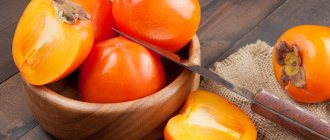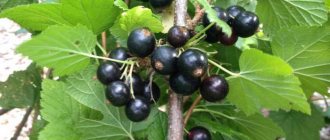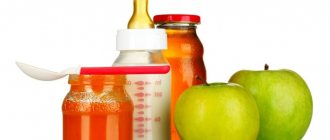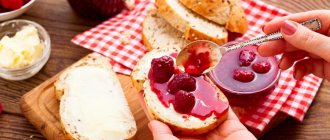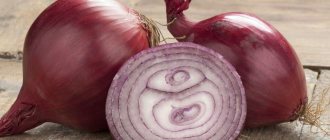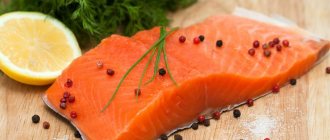It is during the period of breastfeeding that many women experience an increased craving for sweet foods and dishes. At the same time, the lactation period is accompanied by a rather strict diet. Therefore, many women who have recently given birth to a child and are breastfeeding are wondering whether raspberry jam can be eaten. Raspberry jam can be included in the diet during breastfeeding if the mother is not allergic to this berry. Raspberries are not only tasty, but also very healthy - they contain important micro- and macroelements, vitamins, and acids.
The benefits of raspberries
Raspberries have long been considered a cure for many diseases. Raspberries contain salicylic acid, which acts as an antiseptic and anti-inflammatory agent.
Raspberry jam in the diet of a nursing mother will help cope with colds, increase lactation and simply cheer up.
The berry is rich in manganese, iron, molybdenum, potassium, copper, cobalt, pectins and purines. This determines the following properties:
- normalization of water balance;
- improvement of muscle function;
- getting rid of swelling;
- improvement of blood composition;
- normalization of the reproductive system;
- improvement of protein metabolism and metabolism in general;
- normalization of liver function;
- removal of toxins from the body;
- improvement of skin condition.
Raspberry fruits contain beta-sitosterol, which prevents the deposition of cholesterol plaques in blood vessels. It helps against sclerosis. The presence of folic acid in berries prevents the development of leukemia. Iodine is good for the thyroid gland.
For a cold
The most famous property is considered to be the fight against colds. Nursing mothers love this remedy, since conventional medications for breastfeeding are often prohibited. The berry contains a lot of vitamin C, which explains its effectiveness against ARVI. Using the product as jam reduces the effectiveness several times. Raspberry fruits have a good diaphoretic and antipyretic effect, which is especially helpful in the treatment of colds.
At a temperature
Raspberries have a good diaphoretic and antipyretic effect, so it is recommended to drink it as tea at fever. If the thermometer readings are up to 38.5, you can cope with the problem only with healing tea. If the readings are high, you still need to use pharmaceutical drugs.
Drinks made from berries and leaves should be drunk warm. Too hot ones can, on the contrary, provoke an increase in temperature readings. Remember that the berry is capable of removing fluid from the body, so when treating a fever, you should additionally drink a lot of water to avoid dehydration.

If you have a fever and are breastfeeding, it is not advisable to take chemicals from the pharmacy. Raspberry jam will come to the rescue.
Improved lactation
Raspberry tea for nursing women is also useful because it improves lactation. It is believed that it stimulates the functioning of the mammary glands. It is recommended to drink a non-concentrated drink warm half an hour before feeding. Since raspberries are an allergen, consumption in large quantities is prohibited. It is best to drink 1-2 cups a day several times a week.
Possible harm during breastfeeding
Despite the fact that raspberry jam has many beneficial properties, there are a number of contraindications and possible adverse reactions that limit its use during breastfeeding. First of all, you should remember that such a product is a strong allergen, so the baby may develop a rash, itching, cough and other negative reactions.
A large amount of sugar in jam can cause bloating, stool problems, nausea and colic in infants.
Raspberries in the form of berries, rather than jam, should be chosen by people who are obese or losing weight due to their high calorie content. Due to the diuretic effect, the product is prohibited for people with impaired kidney function. Polyps and bronchial asthma are also contraindications for use.
Komarovsky's opinion
The pediatrician Komarovsky, deservedly respected by many people, not only allows women during lactation to use this product, but also strongly recommends it. In his opinion, this will allow a nursing mother to feel better; her body will receive all the necessary substances and minerals, which will be fully transmitted to the baby through milk.
Evgeny Komarovsky says that the maximum daily dose should not exceed 5 tsp. jam per day , and between using it you should definitely drink warm water.
Raspberry jam is a real storehouse of vitamins and minerals. Consumption of this properly prepared product in an amount not exceeding the recommended dosage will bring invaluable benefits to the woman’s body after childbirth and her child.
Can a nursing mother eat raspberry jam?
Breastfeeding is not accompanied by strict restrictions. It is important to eat foods correctly and introduce them into your diet. Women often ask, is it possible to use jam while breastfeeding? Raspberry jam is allowed. It is very good for health, but it is an allergen, which forces you to adhere to special rules. When used, the product will not harm your baby.
In the first month after birth
The first month after the birth of a baby is a special time. During this period, the child’s gastrointestinal tract adapts to new nutritional conditions and the external environment. In the first month of a newborn’s life, it is not recommended to eat foods that can cause allergies or severe stress on the gastrointestinal tract, so eating raspberries and its derivatives is prohibited.
When and in what quantity is it possible?
Since the product is an allergen, it is recommended to introduce it into the diet after 3–5 months, but sometimes the doctor allows you to eat it earlier . Most often, it does not cause an allergic reaction in the baby, passing through milk exactly after 3 months, when the baby gets used to the external environment. Therefore, if you are interested in what sweets are possible when breastfeeding from 3 months, you can pay attention to this product.
For the first time, it is recommended to eat 1 teaspoon of jam with tea or water. Negative manifestations can usually be noticed within 1–2 days after introduction into the diet. In the case of such strong allergens, doctors recommend observing for about a week. If you do not notice signs of allergies or problems with the gastrointestinal tract, you can gradually increase the dosage. The recommended amount is 1-2 tablespoons per day 3-4 times a week. Raspberry jam can be eaten on its own, added to tea and other drinks, or used in cooking, for example, added to oatmeal.
Table for introducing raspberry jam into the diet.
| Baby's age | How to use |
| 1 month | Strictly prohibited |
| 2 month | It is possible, with the permission of a doctor, in minimal quantities, if your mother or close relatives have never had a negative reaction to raspberries. |
| 3 month | It is allowed to be introduced into the diet on a general basis with 1 teaspoon per day. It is better not to exceed the norm of 1 tablespoon per day. |
| 4th and 5th month | You are allowed to eat 1-2 tablespoons a day several times a week, unless otherwise advised by your doctor. |
Doctor Komarovsky's opinion
Dr. Komarovsky says that the diet of a nursing mother should not change during breastfeeding. It should be familiar and balanced. It is important to eat everything in moderation and observe the baby’s reaction. In addition, he notes the benefits of raspberry tea as a pharmacological remedy, which you can see in the video.
Can it be in a child’s diet?
Raspberry jam can be included in a child's diet. It contains many vitamins and fiber and helps compensate for their deficiency in a growing body, especially during the cold season. In order for this product to benefit the baby, it must be introduced into the diet gradually and in small quantities.
At what age should it be included in complementary foods?
Today there is no consensus among experts on this matter. The strictest pediatricians and nutritionists believe that raspberry jam can only be present in the diet of children over 3 years of age. Other experts believe that this product can be included in a child’s diet as early as 1 year. Especially when it comes to the lack of fresh berries and fruits in sufficient quantities in the diet.
Attention! It is necessary to take into account not only the age of the baby, but also his state of health, as well as general well-being. Healthy children can be given raspberry jam in small doses as early as 1 year of age.
For those who suffer from diathesis or weakened immunity, this dish can be included in the diet no earlier than 1.5-2 years after birth.
How is it useful?
Raspberry jam is also very useful for children’s bodies:
- Helps improve intestinal function as it contains quite a lot of fiber.
- Helps enrich the body with various vitamins and minerals.
- It is an excellent alternative to medications for relieving low fever.
- It is a prophylactic agent in the treatment of many viral throat diseases.
Only high-quality and completely natural products have such beneficial properties.
Is store-bought or homemade jam healthier during lactation?
If you are faced with a choice of which jam to prefer, homemade or from the store, then, of course, the answer is homemade. Homemade jam, which is based on fresh berries collected from your garden, is always the healthiest. If you plan to buy homemade jam from your grandmother at the market, then store-bought is better. This homemade jam is made from unknown berries. It can be closed in non-sterile conditions, with dirty hands, etc. All this is extremely dangerous and can lead to poisoning, which will affect the health of your child.
How to choose jam in a store?
If you choose a store-bought product, pay attention to the expiration date. Well-prepared raspberry jam can be stored unopened for up to 2 years. In addition, carefully study the composition. Real jam contains only raspberries, sugar, and water. Please note that the berries should come first.
Flavorings, preservatives and other chemicals are harmful during breastfeeding; they negatively affect the body of an infant and increase the risk of developing allergies. If you notice them in the composition, you should know that most likely the raw materials from which the delicacy is made are not very good, since the shelf life is quite long even without additives.
Pay attention to the appearance of the jam. It must be packaged in glass containers. The consistency should be uniform in appearance, without lumps. If the product is candied, it means that the manufacturing technology was violated.
Recommendations for use during breastfeeding
You need to choose only high-quality jam that has been heat-treated. During lactation, you cannot consume raw jam, that is, simply raspberries ground with sugar. They are more dangerous and allergenic compared to heat-treated products.
Be sure to monitor your baby after consuming a test portion. If diathesis appears, the skin begins to peel, the child begins to sleep poorly and cry more, it is strongly recommended to stop using this product.
How to properly introduce it into your diet?
Attention! The first test portion of the product should not exceed 1 teaspoon. Raspberry jam should not be consumed on an empty stomach. Be sure to have breakfast in advance and drink at least 2 glasses of warm water.
The best time to use the product is immediately after breakfast and breastfeeding. So, before the baby’s next latching, the jam will be almost completely processed by the mother’s body and the risk of an allergic reaction in the baby will be reduced.
Reviews
Maria, 29 years old
Honestly, I ate raspberry jam throughout my pregnancy and breastfeeding. My grandmother said that I couldn’t take medicine, but these were good vitamins and would help with colds. I didn’t even think that it was impossible. I just found out recently. There were no allergies.
Katya, 35 years old
My baby had such a severe allergy to raspberries. I got sick, since medications for breastfeeding women are not recommended, so I decided to treat myself with raspberries. Oh, how I regretted it. Not only am I sick, but the child is itching and screaming. Bad experience((
